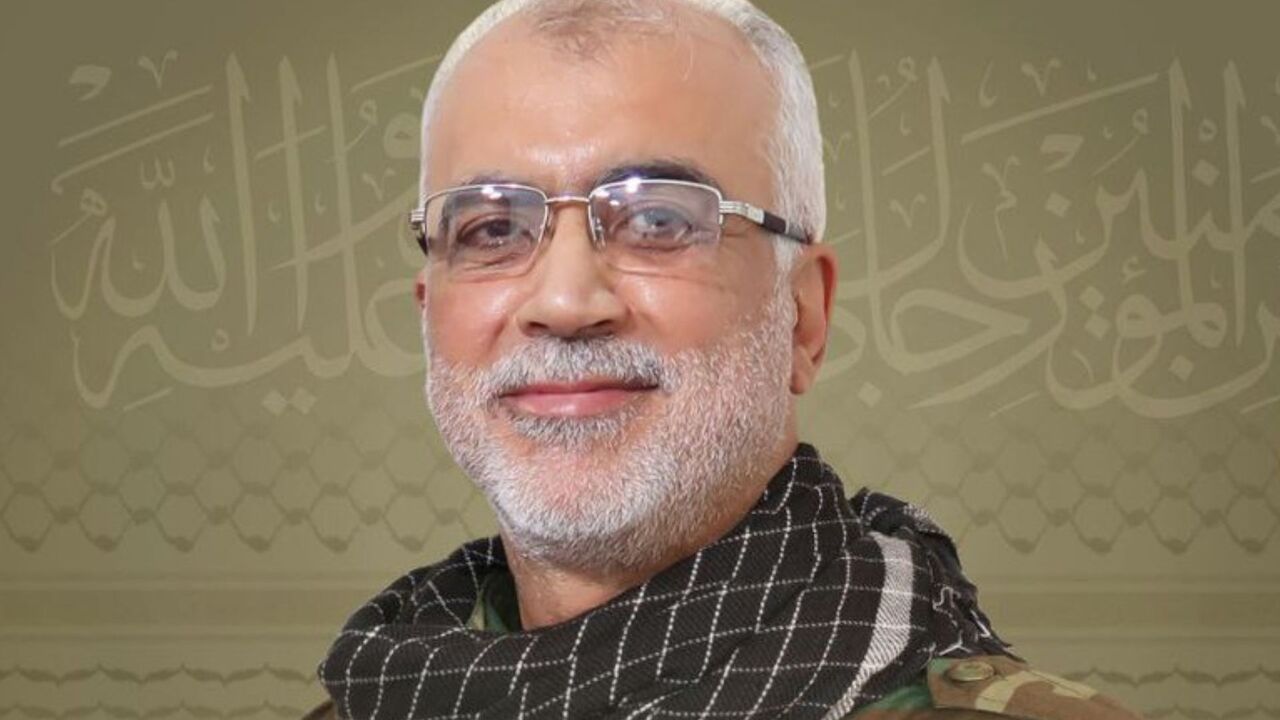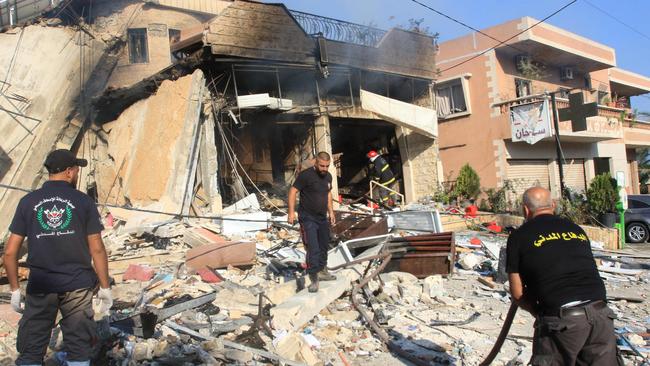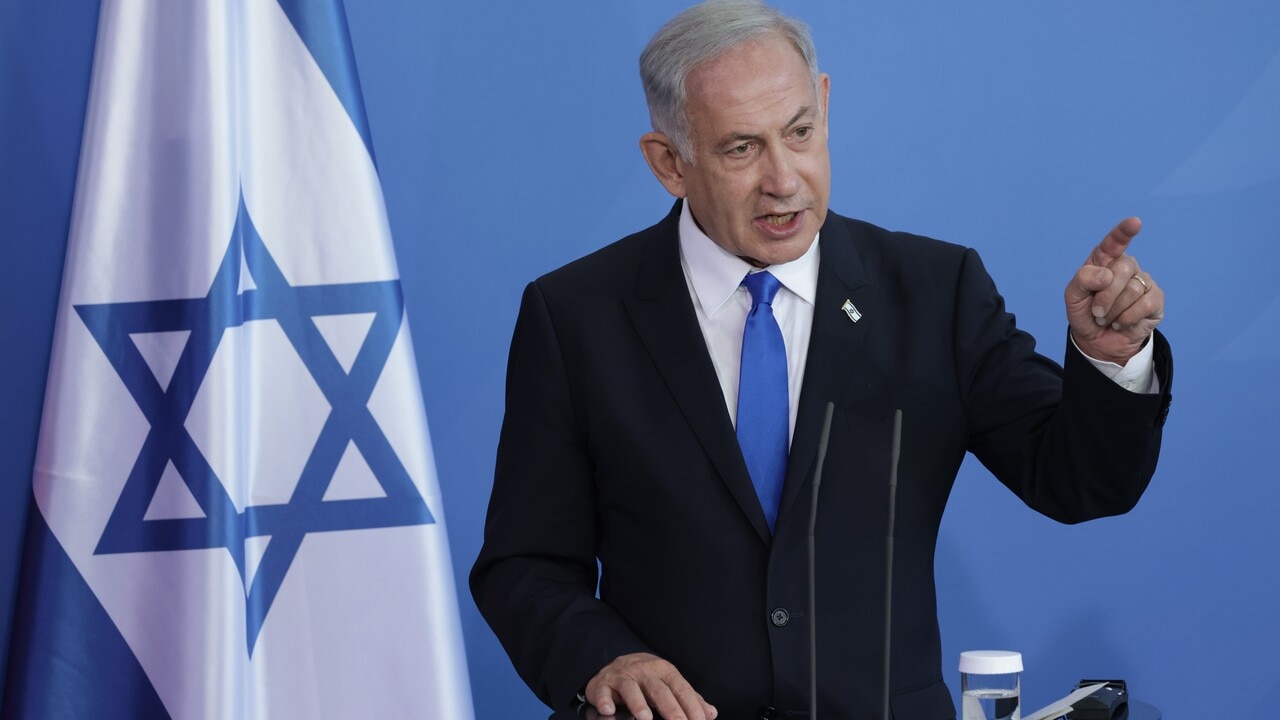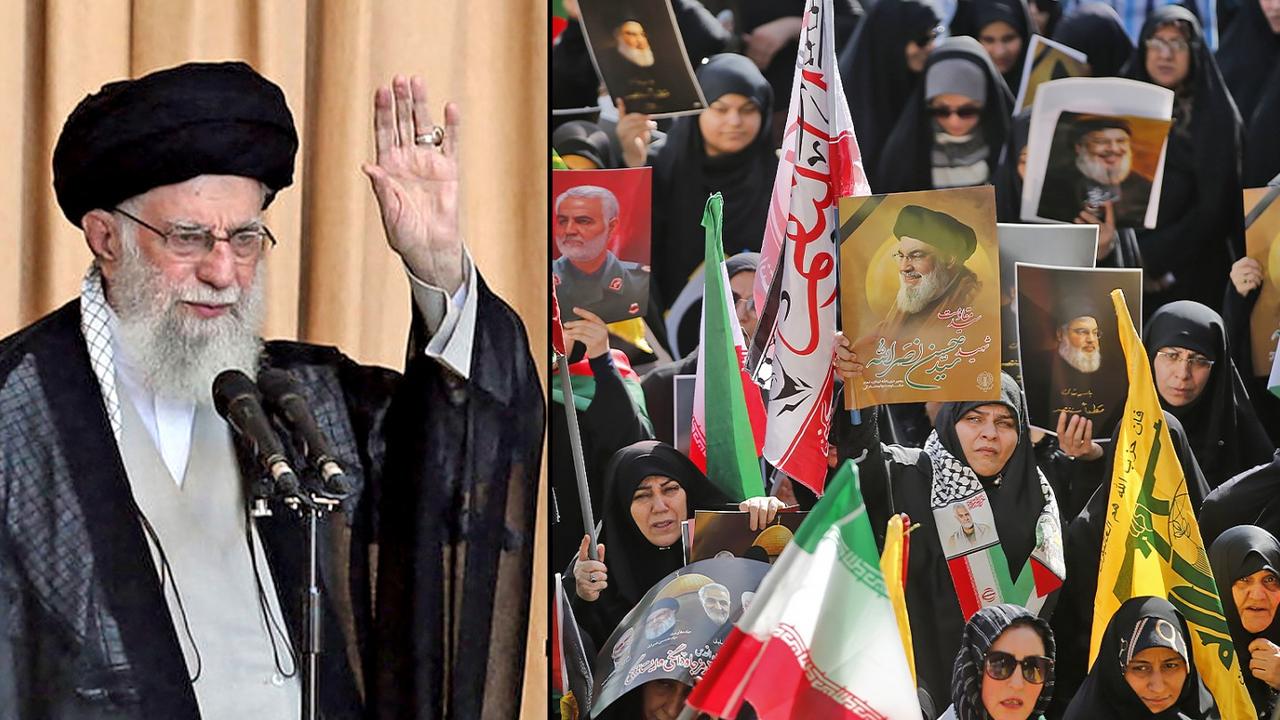Hezbollah missiles chief Ibrahim Qubaisi killed in Israeli strike on Beirut as Middle East moves toward all-out war
Hezbollah loses key commander in a new round of Israeli strikes on Beirut and the Beqaa Valley as Jerusalem considers a ground invasion, with Hezbollah and Israel on the brink of all-out war.

Hezbollah’s rocket and missile chief Ibrahim Qubaisi has been killed in an Israeli strike on his Beirut stronghold, in which other top commanders of the militant group also died, as Israel and Hezbollah teeter on the brink of all-out war.
Qubaisi commanded Hezbollah’s precision-guided missile unit amongst other rocket units, the Israeli military said in a statement.
“Qubaisi was a central source of knowledge in the field of missiles, and was close to the senior military leadership of Hezbollah,” the Israeli Defence Forces said.
In a video address, IDF spokesman Daniel Hagari said Qubaisi had been responsible for the intense rocket fire on Haifa in the last two days.
“We continue to degrade Hezbollah’s capabilities, also focusing on eliminating the commanders who operate them,” he said.

His death came as cross border strikes intensified, with Israel continuing its attacks on southern Lebanon and the Beqaa Valley – Hezbollah’s stronghold – and the terrorist group firing 300 rockets into Israel, sending a million civilians into bomb shelters.
In another day of strikes after Israel’s devastating bombardment of Hezbollah targets across Lebanon in an unprecedented assault, the Iranian-backed terror group fired 300 rockets into Israel, sending a million civilians into bomb shelters.
The death toll in Lebanon in two days of Israeli bombardment of Hezbollah targets across Lebanon in an unprecedented assault has reached 569, including six dead in the hit on Qubaisi, according to the country’s health ministry. It is the deadliest single-day toll since Lebanon’s 1975-90 civil war.
Rear Admiral Hagari vowed on Wednesday (AEST) Israel would continue to hammer Hezbollah targets, accusing the group of turning southern Lebanon and Beqaa into a “combat zone,” by storing missiles in residential homes and saying the IDF would be relentless in destroying those sites.
In a separate warning, Prime Minister Benjamin Netanyahu told Lebanese civilians: “If you have a rocket in your house, you won’t have a home.”
Amid mounting speculation that Israel was preparing for a ground invasion of Lebanon, the country’s ambassador to the UN Danny Danon said Jerusalem was “not eager” for the move.
“We had experience in Lebanon in the past. We are not eager to start any ground invasion anywhere,” Mr Danon said as intensified Israeli strikes stoked fears of a wider war in the Middle East.
“We don’t want to send our boys to fight in a foreign country, but we are determined to protect the civilians of Israel,” Mr Danon told reporters at the United Nations as world leaders gathered for the organisation’s signature diplomatic event.
“We prefer a diplomatic solution. If it’s not working, we are using other methods to show to the other side that we mean business.”
Iranian President Masoud Pezeshkian told the UN Hezbollah “cannot stand alone” against Israel, and called on the international community not to “allow Lebanon to become another Gaza.”
However Tehran knocked back a request from Hezbollah to attack Israel, saying the “timing isn’t right,” according to the Axios website.
Iranian officials told their Hezbollah counterparts an attack could not take place while Mr Pezeshkian was in New York.
Meanwhile UK Defence chiefs planning a huge evacuation of British citizens from Lebanon, deploying 700 troops to Cyprus to assist hundreds of other UK troops based there in helping help stranded British citizens. Military teams and officials from the Foreign Office and UK Border Force will also be deployed to the region, the London Times reports.
Netanyahu’s grim warning after Israel’s blitz
On Monday (local time) the Israeli attacks on more than 1600 Hezbollah targets left almost 500 people dead and more than 1600 injured, triggering panic across southern Lebanon as people rushed to flee to safety toward Beirut in the north.
Israeli Prime Minister Benjamin Netanyahu warned that the bombardment, Israel’s largest and most deadly assault against Hezbollah since at least 2006, would continue.
“I promised we would change the balance of power in the north – that is exactly what we are doing,” Mr Netanyahu said.
“We are destroying thousands of missiles and rockets aimed at the cities of Israel and its citizens.”

Mr Netanyahu warned the Israeli public to expect “complicated days” ahead as Hezbollah retaliated by firing about 240 projectiles into northern Israel amid fears the heavily armed terror group might quickly escalate its attacks on Israel.
Schools remained shut in many parts of northern Israel and authorities ordered wide-ranging restrictions on gatherings as Israelis prepared for more retaliation from Hezbollah.
The terror group is estimated to have an arsenal of more than 100,000 missiles and rockets capable of striking any part of Israel.
Anthony Albanese urged Australians in Lebanon to leave as soon as possible.
“People who are in Lebanon should listen to the warning that we have been saying for months – they should come home while commercial flights are available,” the Prime Minister said.
Mr Albanese also declared it was “not a commonsense thing” for Australians to continue going to Lebanon in recent months.

Foreign Minister Penny Wong called for a de-escalation on both sides. “We are deeply concerned, we’re alarmed by the escalation and the loss of civilian life both in Lebanon and also the attacks into Israel,” Senator Wong said in New York.
“We have consistently said we wish to see de-escalation, we believe a wider regional conflict is not in the interests of any of the peoples of the region.”
Israel’s military chief-of-staff, Lieutenant General Herzi Halevi, said the broadbased air strikes, which focused heavily on southern Lebanon, were aimed at “combat infrastructure that Hezbollah has been building for the past 20 years”.
But Lebanese authorities said Israel’s attacks also hit hospitals, medical centres and residential buildings, and local officials said the dead included more than 90 women and children. Mr Netanyahu urged Lebanese civilians to evacuate areas where Hezbollah has military assets.
“Please get out of harm’s way now,” the Israeli Prime Minister said. “Once our operation is finished, you can come back safely to your homes.”
However, human rights groups said it was impossible for many Lebanese civilians to know if they lived in areas that might be a target for Israeli attacks.
The massive bombardment comes as Hezbollah is in disarray, with thousands of its fighters disabled by last week’s remote-control explosions of Hezbollah pagers and walkie-talkies, and by the assassination in a bomb strike of a cabal of its senior leaders in Beirut.
The pager and walkie-talkie attacks have crippled the group’s ability to communicate and co-ordinate a response to the Israeli bombardment.
Hezbollah has vowed to retaliate and says it will not stop bombing Israel’s north until a ceasefire agreement is reached with Hamas in Gaza.
General Halevi said Israel’s military was “preparing for the next phases” of the conflict with Hezbollah in Lebanon, without stating what those phases would be. There is speculation that if this series of air strikes does not persuade Hezbollah to end its attacks on Israeli territory, Israel may conduct a ground invasion of southern Lebanon to root out Hezbollah’s presence there.
Israel’s military spokesman, Rear Admiral Daniel Hagari, said the army would do “whatever is necessary” to push Hezbollah from Lebanon’s border with Israel.
Israel says its aim in its conflict with Hezbollah is to prevent the terror group from continuing its almost year-long campaign of daily attacks on northern Israel, which have forced some 60,000 Israelis from their homes along the border.
Israel wants to create safe conditions for those Israelis to return to their homes.
“We are not looking for wars. We are looking to take down the threats,” Rear Admiral Hagari said. “We will do whatever is necessary to achieve this mission.”
Israel’s attack led the Pentagon to order more US troops to the Middle East to help stop the conflict spreading, and also to prevent a repeat of attacks on US troops in Iraq and Syria by Iran-backed militia.
“In light of increased tension in the Middle East, and out of an abundance of caution, we are sending a small number of additional US military personnel forward to augment our forces that are already in the region,” Pentagon spokesman Major General Patrick Ryder said.


